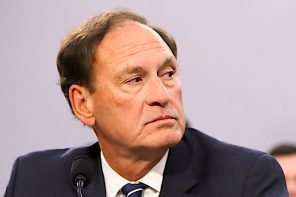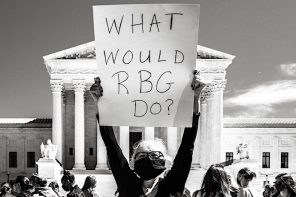In a move that is sure to become a new anti-Obama rallying cry for the religious right, the Department of Health and Human Services has ruled that religious institutions have a one-year exemption before they must comply with the requirement under the Affordable Care Act that employers provide co-pay free coverage for contraception in their health insurance plans.
Churches and other houses of worship have always been exempt from the requirement. But the U.S. Conference of Catholic Bishops had pressured the Obama administration to expand that exemption to other religious institutions, including hospitals and universities, arguing that the rule infringed on their religious freedom. The pressure from the Bishops infuriated Democrats, but is one piece of a stepped-up campaign to portray public policy they view as being at odds with Vatican teaching on sex, gender, and reproductive issues as an infringement of religious liberty. Just yesterday, Pope Benedict told a gathering of Bishops that “radical secularism” poses a “grave threat” to religious freedom in the U.S.
In praising the Obama administration’s position, Jon O’Brien, president of Catholics for Choice, said, “The battle over this issue is a warning about what is to come, especially as the bishops are playing the victim card in their pleas for special treatment and their false assertions about alleged attacks on religious freedom. The president and Congress will need to get real about what is going on, and remember that this coming November the electorate will not be listening to the bishops, so neither should they.”
As I reported in a piece earlier this month, these efforts to frame health policy, as well as laws granting equality to LGBT people, as infringements of religious liberty, will be central to the religious right agenda in 2012.
UPDATE: The Beckett Fund for Religious Liberty, which, as I reported in my long religious freedom piece, represents both a Catholic college and an evangelical university in challenging the rule, has issued a statement (tellingly calling the rule an “abortion drug mandate”) claiming that the rule will not withstand constitutional scrutiny. As other observers have noted, opponents of the contraception mandate have claimed that the Supreme Court’s recent decision in EEOC v. Hosanna-Tabor, which recognized a “ministerial exception” that prevents churches from being sued by “ministerial” employees under federal employment discrimination laws. The Beckett Fund makes this argument in its statement, but legal observers have noted the narrow holding in that case. The opponents of the Obama administration decision like the Beckett Fund does in its statement, will attempt to make the Hosanna-Tabor into a broad statement against government interference in church affairs in an attempt to bolster their claims against the contraception mandate.
In her statement, HHS Secretary Kathleen Sebelius says, “This decision was made after very careful consideration, including the important concerns some have raised about religious liberty. I believe this proposal strikes the appropriate balance between respecting religious freedom and increasing access to important preventive services.”




